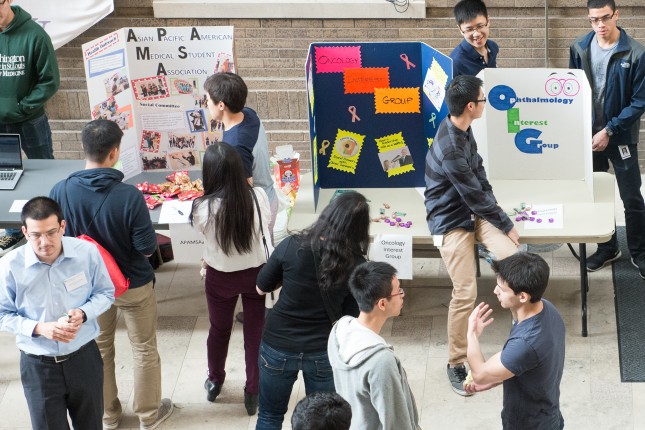Washington University School of Medicine encourages and supports student organizations and programs that provide learning experiences beyond the classroom and the medical center.

The Office of Diversity Programs works very closely with a wide range of student groups on issues such as promoting effective health care delivery to underserved communities, introducing younger students to opportunities in science and medicine and fostering a rich learning environment that provides space for different perspectives and backgrounds.
Here’s a sampling of student groups to explore: